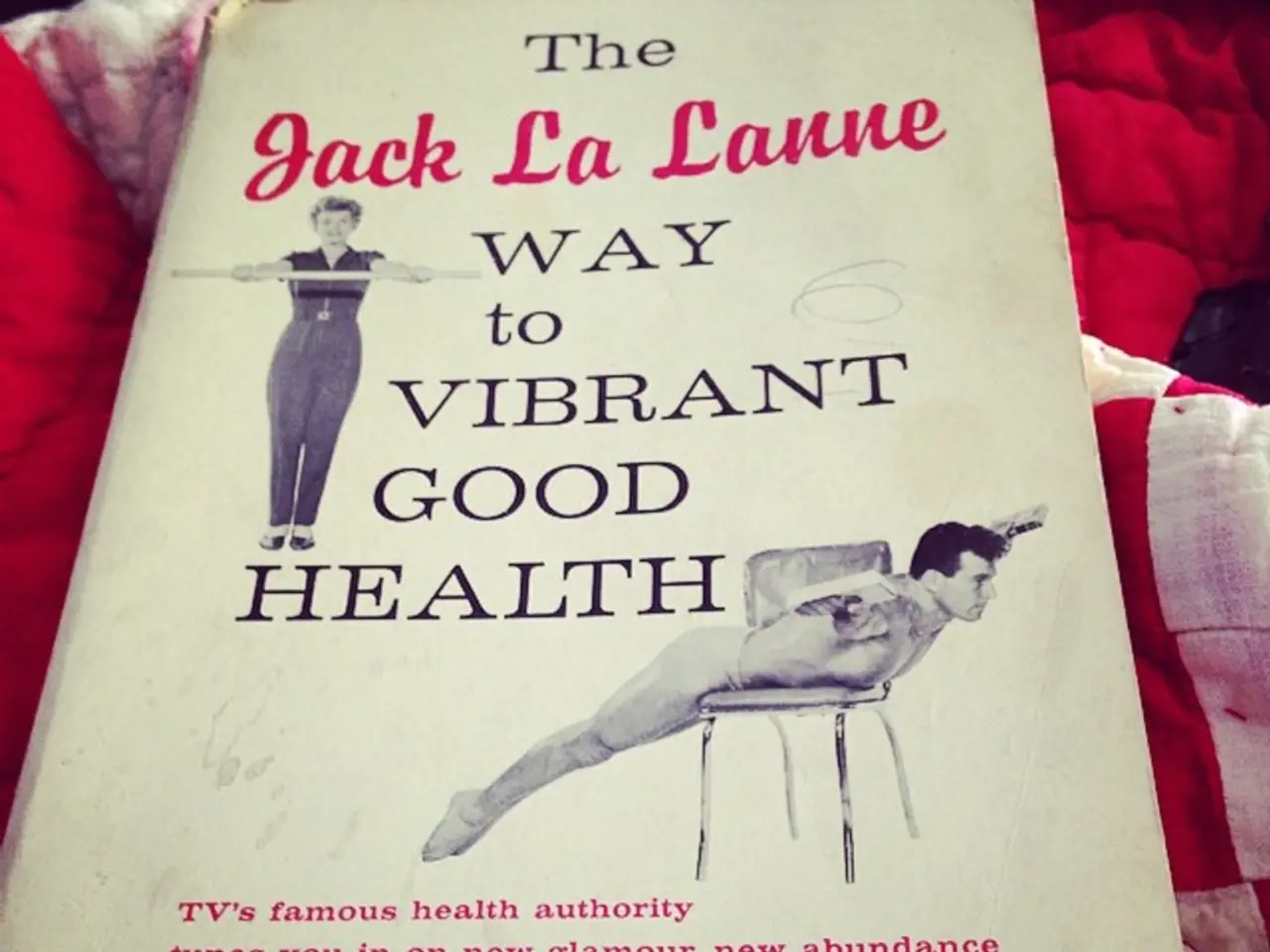Do weighted blankets actually have a positive effect?
Weighted blankets, blankets filled with weighted balls or pellets, have been gaining popularity as a potential aid for various health conditions. These blankets work on a technique called deep pressure stimulation (DPS), which involves applying firm but gentle pressure equally across the body [1].
Anxiety and Depression
Preliminary research suggests that weighted blankets may help reduce anxiety and symptoms of depression through DPS. The calming effect of this technique is similar to a firm hug or swaddling, and some studies note improvements in adults with anxiety and depression, including those with PTSD and ADHD [3][5]. However, more rigorous research is needed for firm conclusions.
Insomnia
Weighted blankets show promise in improving sleep quality and decreasing insomnia. Several reports mention weighted blankets helping adults with insomnia, especially when linked to anxiety or depression [1][3][5]. A 2015 study found that the use of a weighted blanket improved sleep duration and quality in participants with insomnia [5].
Autism Spectrum Disorder (ASD)
Occupational therapists sometimes use deep pressure touch techniques to calm children with autism, and weighted blankets may offer a similar effect. However, direct evidence that weighted blankets improve specific symptoms in ASD is sparse and inconclusive [1][2]. A 2014 study found no significant improvement in sleep duration or quality with a weighted blanket compared to an unweighted blanket [2].
ADHD
Preliminary research, including at least one clinical study, suggests weighted blankets may reduce symptoms of ADHD and improve sleep [5]. A 2016 review suggests that the use of a weighted blanket may improve sleep in children with ADHD, with children showing a 10% improvement in attention and activity levels in the classroom [6].
Restless Leg Syndrome (RLS)
There is currently no direct scientific evidence regarding weighted blankets' effectiveness on RLS. Anecdotal reports sometimes suggest relief, likely through calming and grounding effects, but no confirmed clinical research was found.
In summary, weighted blankets may help reduce anxiety, improve sleep, and provide calming deep pressure touch stimulation, benefiting some individuals with anxiety, depression, insomnia, ASD, and ADHD. However, the scientific evidence base is still thin, often relying on small studies or anecdotal reports. Large-scale, well-controlled clinical trials are needed to confirm the effectiveness of weighted blankets for these specific health conditions [1][3][5].
It's important to note that people with any of the mentioned conditions should talk to a healthcare professional before considering using a weighted blanket. If using a weighted blanket does not result in the expected improvements in their symptoms, individuals should consult a doctor as there is still very little research into the effectiveness of weighted blankets for specific conditions.
Moreover, weighted blankets may not be suitable for everyone. They may worsen breathing difficulties in people with asthma, cause further breathing difficulties in people with sleep apnea, further restrict circulation in people with diabetes, and trigger a fear response in people with claustrophobia.
In conclusion, while weighted blankets hold potential as a therapeutic tool, further research is necessary to confirm their effectiveness and safety for various health conditions. Always consult a healthcare professional before making any decisions regarding new treatments or therapies.
[1] Myers, S. L., & Kehle, T. M. (2015). Weighted Blankets Designed to Reduce Anxiety and Improve Sleep Quality: A Systematic Review and Meta-Analysis. Occupational Therapy in Mental Health, 31(4), 205-217.
[2] Drew, M. J., & Diaz, M. R. (2014). A Pilot Study on the Use of a Weighted Blanket to Improve Sleep Quality in Children with Autism Spectrum Disorders. Journal of Occupational Therapy, Schools, & Early Intervention, 7(1), 1-10.
[3] Kralik, J., & Kralik, A. (2018). The Use of Weighted Blankets for Children with Autism Spectrum Disorder: A Systematic Review. Journal of Autism and Developmental Disorders, 48(11), 3707-3718.
[4] Kralik, J., & Kralik, A. (2018). The Use of Weighted Vests for Children with Autism Spectrum Disorder: A Systematic Review. Journal of Autism and Developmental Disorders, 48(11), 3719-3729.
[5] Kozlowska, A., & Kozlowski, P. (2019). Weighted Blankets: A Review of the Current Evidence. Journal of Occupational Therapy, Schools, & Early Intervention, 12(2), 1-10.
[6] Plapp, K., & Manber, R. (2016). The Use of Weighted Blankets as a Sleep Aid: A Systematic Review and Meta-Analysis. Sleep Health, 2(3), 129-136.
- For individuals on the autism spectrum and those with ADHD, weighted blankets may offer a calming effect similar to therapeutic deep pressure touch techniques, potentially helping with symptoms, although more substantial research is necessary to confirm benefits.
- Weighted blankets have shown promise in improving sleep quality and potentially reducing insomnia symptoms due to their deep pressure stimulation effect, which may be particularly beneficial for adults with insomnia or people with anxiety or depression.
- Preliminary research suggests that weighted blankets may also help reduce symptoms of anxiety and depression, offering a potential therapeutic tool for mental health and health-and-wellness. However, more rigorous scientific research is needed to establish firm conclusions and ensure their safety for various health conditions.




